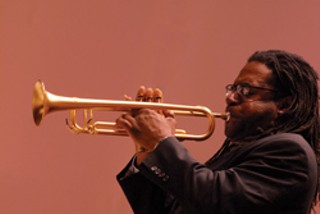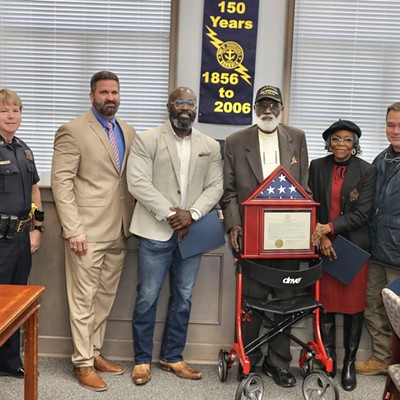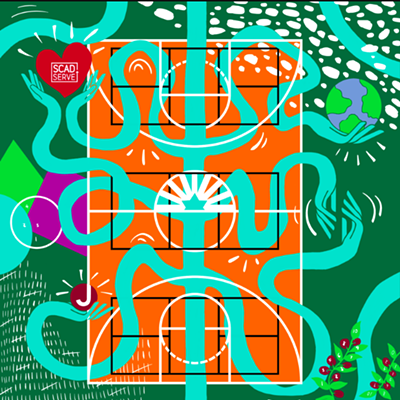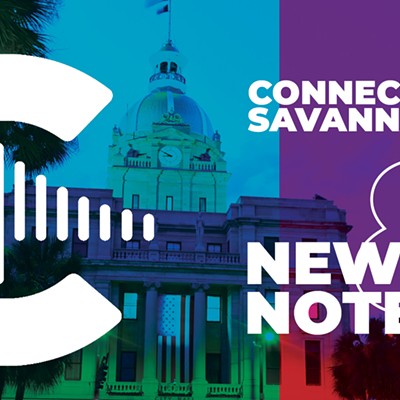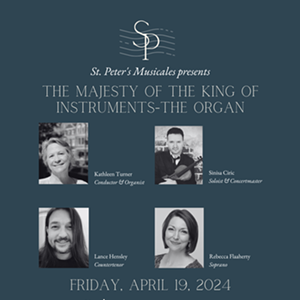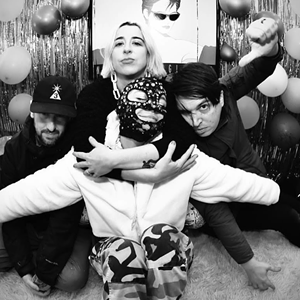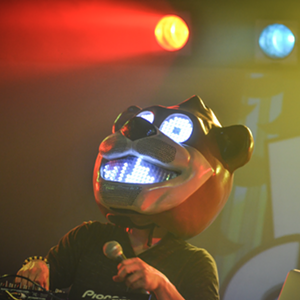CONYERS, GA. NATIVE MARCUS PRINTUP was raised on gospel before catching the jazz bug in his late teens. An award-winning trumpeter in college, he was befriended by the masterful jazz pianist Marcus Roberts, and that imprimatur led him to join Wynton Marsalis’ Jazz at Lincoln Center Orchestra in the early ‘90s.
He’s gigged and /or recorded with legends like Betty Carter and Dianne Reeves, released albums under his own name, and —when not touring internationally— conducts workshops with young musicians.
I caught up with Printup at his Atlanta home in advance of his upcoming visits (with a band) to ten local elementary schools this week as part of the “Jazz Is Feeling” interactive outreach program sponsored by the Savannah Music Festival, in tandem with Black History Month.
How did you become involved in this?
Marcus Printup: Rob Gibson approached me to perform at this year's festival in April but also included the offer to teach. I jumped at that because I love teaching. For me, it is a passion almost equal to performing. I chose the title "Jazz Is Feeling" because as jazz musicians, we try to emulate human expressions and feelings while playing. Music can encompass a wide range of emotions or feelings. My goal is to teach students how to hear, feel and play music in a more advanced manner.
Is this the first time you have taken part in (and/or led) an educational program of this sort for elementary school kids?
Marcus Printup: I've done a lot of teaching at the college, high school and middle school levels but very little at the elementary level. Kids are far more receptive at this age so it is a welcome responsibility I have to steer them in the right direction.
What sort of response have you received?
Marcus Printup: My girlfriend Riza Hequibal teaches at Greater Atlanta Christian Private School and I've done a few music clinics for her students. She plays the harp and we've done a few assembly programs for the school. The kids responded with much excitement and curiosity. When I was a grammar school student in Conyers, Ga., I had no exposure to jazz. None whatsoever. My role as an educator is mandatory. I am thrilled to bring my experiences back home to the kids -- especially in my native state of Ga.!
What sort of criteria did you use to develop the curriculum you use with kids?
Marcus Printup: I've chosen basic teaching materials that I feel the students will relate to. I give examples of how jazz music can correspond with human emotions. For example, I'll demonstrate how my trumpet can be made to laugh, cry, shout, growl and moan. I will also demonstrate how jazz bands works like automobiles. The drums serve as the engine, the upright bass is the wheels, the piano is the body and the horn player is the driver. We all must work together as a unit in order for the band (car) to function. Some cars go fast, while some cars go slow -- as with a ballad. I also do a lot of call and response. I will play a phrase for the kids and have them sing it back to me. This exercise strengthens ear training and recall. It is important when teaching kids not to use material that goes over their heads. When the clinics are interactive, you have them in the palms of your hands. I also take plenty of time for answering any questions they may have.
Are you a father yourself?
Marcus Printup: No kids yet, but I have two great dogs! Raising my oldest, Dewey, has been one of the most rewarding experiences ever. He understands everything I tell him. He has developed his ears to understand my patterns of speech in the same way a student starts to learn how to improvise. In the beginning stages, chord changes, dominant versus major, fully diminished versus half diminished etc... can become overwhelming to learn. But through repetition, the students start to piece things together and that is when they are free to create. By the way, Dewey was named after Miles Dewey Davis! His baby sister is named Sadie. There is a great Horace Silver tune called "Sister Sadie"!
Why do you feel it's important to expose children to this music in a school setting?
Marcus Printup: It seems that our society shuns class and promotes ignorance. I won't criticize American Idol or other popular sources for music appreciation, but it is a shame that many people feel these sources offer the apex of talent. I watched one of my favorite sports shows on ESPN, and they discussed the following topic, "What was the biggest upset, the New York Giants defeating the New England Patriots in the Superbowl or Herbie Hancock defeating Kanye West for the top record Grammy."
One of the sportscasters... Ok, I'll just name him: Tony Kornheiser. He said, "Of course the answer is Herbie Hancock defeating Kanye West. I mean, who is this guy? I've never heard of him. He doesn't sing, he doesn't rap, he doesn't dance." Mr. Kornheiser's comments explain why it is important to educate the upcoming generation. By the way, I sent an e-mail to Mr. Kornheiser and expressed many things to him. I think he gets it now!Many are concerned that too much emphasis is placed on jazz as a fine art form. They fear that while this helps encourage young people to study it seriously, it also takes the genre further from "the street", with the unfortunate consequence being that jazz is now seen less as a form of pop and more as a type of classical music. Does this shift concern you at all? Does offering degrees in jazz run counter to its roots?
Marcus Printup: Quite the contrary. Jazz should be considered America's classical music. It should demand the same respect and esteem we hold for European classical music. The concept that jazz is "street" music to me diminishes its contribution to the arts. Jazz came from highly skilled and talented people who weren't respected in this country because of their skin tone. Duke Ellington's band performed at the richest and most prestigious venues in the U.S, but was forced to enter through the back door. We have since matured as a nation and I feel that we should educate our new society to respect this music and give it the proper honour it deserves. The way to put jazz in the mainstream is to demand more respect for it. Those who are hip and cultured -- like the fine people of Savannah -- will join in and hopefully others will follow.
How did you select the composers and musicians featured in these workshops? What is it about each one of them (such as Coltrane, Gillespie, Ellington, Marsalis, Morton, and others) that you felt was crucial to an introductory take on jazz and blues?
Marcus Printup: There are so many fantastic composers and tunes out there, I've yet to isolate what tunes we'll play for these shows. There will be a lot of audience participation. I can say we'll focus on the blues. Each program will be different. I have many different options for the students. I teach my clinics like I play jazz -- I improvise! It's important to say, though, that with improvisation comes preparation. I won't improvise anything unless I know the material thoroughly.
How were your backing musicians for this series of school events selected? Have you ever played with any of them before?
Marcus Printup: I am always happy to perform in my home state. I am even more thrilled to play with musicians living in this great state. When you come to Savannah, there is a legendary bassist you must play with: Ben Tucker! Ben allowed me on his bandstand when I was a college student at the University of North Florida in the early '90s. When the Jazz at Lincoln Center Orchestra performed at the festival last year, I told Wynton (Marsalis) that he should call Ben up for a tune. Cats in the band are still talking about how hard the band was swinging with him.
Kinah Boto will be playing drums. Kinah is one of the top drummers in Atlanta. He performs regularly with the fantastic vocalist Neena Freelon. He recorded on my last Blue Note release, Nocturnal Traces. Kinah is currently a drum professor at Georgia State University and also plays a mean game of basketball! Our guitarist is Dan Barazu. He was recommended by Rob Gibson. I'm looking forward to playing with him.How much rehearsal (if any) will take place with this unit before making the scene?
Marcus Printup: I've sent the musicians a list of topics we will discuss. We won't need to rehearse anything. These are the finest musicians around!
You've performed at the Savannah Music Festival in the past. What about the SMF stands out to you in comparison to other multi-artist or multi-day festivals?
Marcus Printup: Although he is very modest, Rob Gibson is a treasure to this community. In some ways he is like King Midas. But seriously folks, Mr. Gibson has created an incredible festival here. This will be my third appearance and it keeps getting better. No other city in Georgia -- except Atlanta-- brings in the caliber of musicianship that this festival brings in. It's great for your city and even greater for the musicians to see this beautiful place. I came here for All-State band conventions back in the '80s and now I feel very at home in Savannah.
Have you been able to experience much of Savannah's charm on previous visits here?
Marcus Printup: I hope there is enough time for me to take in more historical sights this week. Isn't there a museum on slavery and African-American history? I also have heard great things about SCAD and may be visiting their studios. But one thing I can't forget is to head down to the cobblestone walk on River St. and get some pralines!



